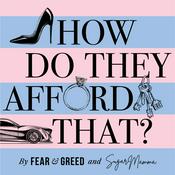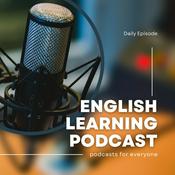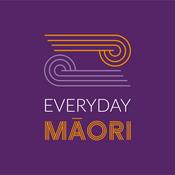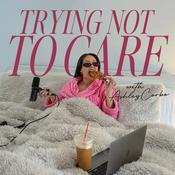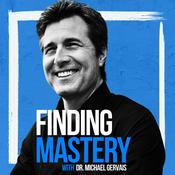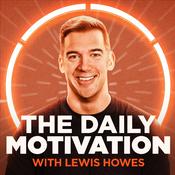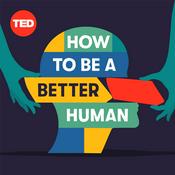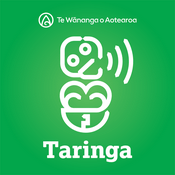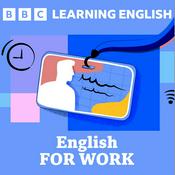Creating Neurodiversity-Affirming Schools
Emily Kircher-Morris & Amanda Morin
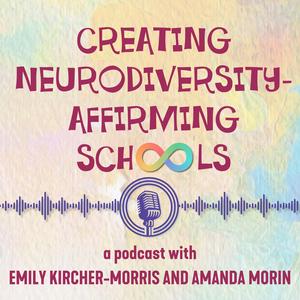
Latest episode
13 episodes
- In this episode of Creating Neurodiversity-Affirming Schools, Emily Kircher-Morris and Amanda Morin explore the intersection of mental health and neurodivergence. They reflect on how unmet needs and unsupportive environments can lead to anxiety, depression, and school avoidance—and how affirming approaches can foster resilience and well-being.
They're joined by Dr. Andrew Kahn, licensed psychologist and Associate Director of Expertise and Strategic Design at Understood.org. Drawing from both his professional experience and personal neurodivergent identity, Dr. Kahn shares insight into how school systems can better support students' mental health through systemic changes, not just individual interventions.
Key topics include:
How unsupported ADHD and autism can manifest as anxiety and depression
The impact of school environments on neurodivergent students' mental health
Differentiating between mental health conditions and neurodivergent identities
Why Universal Design for Learning (UDL) benefits all students
Strategies for building self-awareness and self-advocacy skills
How clinicians and educators can collaborate to support student well-being
Resources mentioned:
Dr. Andrew Kahn – Understood.org
Neurodiversity-Affirming Schools online courses – Learn more here
Amanda Morin & Emily Kircher-Morris's book: Creating Neurodiversity-Affirming Schools - In this episode of Creating Neurodiversity-Affirming Schools, Emily Kircher-Morris and Amanda Morin dive into how educators can shift IEPs, 504 Plans, and personalized learning plans from compliance-focused documents to strength-based frameworks. They discuss the importance of incorporating student voices and considering their unique strengths and needs.
Emily and Amanda are joined by Karen Brown, Director of Gifted Education at Paradise Valley Unified School District. With over 35 years of experience, Karen shares innovative, practical approaches for creating inclusive, affirming learning environments, especially for twice-exceptional (2e) students.
Key topics include:
How educators can shift from deficit-focused to strengths-based approaches in IEPs and 504 Plans.
Practical ways to incorporate student voice authentically into learning plans, even for younger students.
Strategies for recognizing and supporting neurodivergent students who may not have formal diagnoses or plans.
The importance of ongoing assessment and revision of accommodations to ensure effectiveness.
Real-life classroom strategies like movement zones, flexible seating, and self-regulation toolboxes.
Reframing "interventions" as "success plans" to emphasize potential rather than problems.
Resources mentioned:
Neurodiversity-Affirming Schools: Transforming Practices So All Students Feel Accepted and Supported by Emily Kircher-Morris and Amanda Morin
A Teacher's Guide to Flexible Grouping and Collaborative Learning by Karen Brown – NAGC Book of the Year (2019)
Neurodiversity University Educator Hub - In this episode of Creating Neurodiversity-Affirming Schools, Emily Kircher-Morris and Amanda Morin explore what it really means to implement strengths-based instruction. They share personal stories and professional insights to unpack common misconceptions and help educators move beyond surface-level approaches to recognizing student strengths.
Emily and Amanda are joined by Kareem Neal, an award-winning educator and inclusion advocate who brings over 25 years of experience as a self-contained special education teacher. Kareem shares how focusing on student strengths—not just interests or academic labels—can transform school communities and expand how we define success.
Key topics include:
How educators can shift beyond interest-based instruction to holistic strengths-based practices
The importance of recognizing non-academic strengths like adaptability, resilience, and authenticity
Why inclusion requires a mindset shift—not just a placement decision
Kareem's "class swapping" model and how it builds respect and connection between students
Practical ways to highlight strengths in neurodivergent students and use them as a foundation for growth
Resources mentioned:
Creating Neurodiversity-Affirming Schools online courses – Learn more
Learn more about Kareem Neal
Universal Design for Learning (UDL) principles – CAST UDL Guidelines - In this episode of Creating Neurodiversity-Affirming Schools, Emily Kircher-Morris and Amanda Morin explore what it means to communicate in ways that support and empower neurodivergent students. They reflect on their own experiences and highlight how language, tone, and intention shape our relationships with learners.
Emily is joined by Meg Wolf, a twice-exceptional educator and founder of Neurodiverse Connections. Meg brings both professional insight and lived experience to the conversation, sharing how we can shift from correction and compliance to curiosity and collaboration.
Key topics include:
How educators can shift from "Why haven't you…" to "What do you need?"
The importance of neutral, nonjudgmental language in classroom communication
Understanding fluctuating capacity and honoring student bandwidth
Teaching and modeling self-advocacy through "co-advocacy"
Strategies to scaffold communication and reduce power struggles
Why presuming competence and reducing hierarchy matters
How direct communication may be interpreted differently depending on power dynamics and neurotype
Encouraging students to ask for clarification and use alternative phrasing
Building rapport to support behavior interpretation and engagement
Resources mentioned:
Neurodiversity-Affirming Schools: Transforming Practices So All Students Feel Accepted and Supported by Emily Kircher-Morris and Amanda Morin – Order here
Neurodiversity-Affirming Schools PD Courses
Neurodiverse Connections –Learn more - In this episode of Creating Neurodiversity-Affirming Schools, Amanda Morin and Emily Kircher-Morris explore how sensory experiences impact student learning. They discuss how classroom environments can either support or hinder students' ability to focus, regulate emotions, and access learning—and what educators can do to create spaces that work for all learners.
Amanda and Emily are joined by Keri Wilmot, a pediatric occupational therapist with over 20 years of experience. Keri specializes in supporting children and families through sensory integration strategies and is the author of Wired Differently: A Teacher's Guide to Understanding Sensory Processing Issues.
Key topics include:
Why unmet sensory needs can be invisible barriers to learning
How educators can shift from behavior-focused to sensory-informed responses
Practical classroom adjustments to reduce visual and auditory overstimulation
The importance of student autonomy and flexible sensory supports
How sensory-friendly environments benefit all students—not just those with diagnoses
Resources mentioned:
Wired Differently: A Teacher's Guide to Understanding Sensory Processing Issues by Keri Wilmot
The Genius of Play – thegeniusofplay.org
Understood.org – understood.org
Neurodiversity-Affirming Classroom Audit & Student Sensory Inventories
Neurodiversity-Affirming Schools: Transforming Practices So All Students Feel Accepted and Supported by Emily Kircher-Morris and Amanda Morin – Order here
More Education podcasts
Trending Education podcasts
About Creating Neurodiversity-Affirming Schools
Dive into the transformational ideas from the book Neurodiversity-Affirming Schools: Transforming Practices So All Students Feel Accepted and Supported, with the Creating Neurodiversity-Affirming Schools podcast. Perfect for book clubs, professional learning communities, or individual listeners, this podcast breaks down each chapter into actionable discussions. Hosted by the authors of the book Neurodiversity-Affirming Schools, Emily Kircher-Morris and Amanda Morin will help you shift mindsets, implement inclusive strategies, and foster environments where every student feels accepted. Join the journey to reshape education and embrace the strengths of all learners.
Podcast websiteListen to Creating Neurodiversity-Affirming Schools, The Tony Robbins Podcast and many other podcasts from around the world with the radio.net app

Get the free radio.net app
- Stations and podcasts to bookmark
- Stream via Wi-Fi or Bluetooth
- Supports Carplay & Android Auto
- Many other app features
Get the free radio.net app
- Stations and podcasts to bookmark
- Stream via Wi-Fi or Bluetooth
- Supports Carplay & Android Auto
- Many other app features


Creating Neurodiversity-Affirming Schools
Scan code,
download the app,
start listening.
download the app,
start listening.





